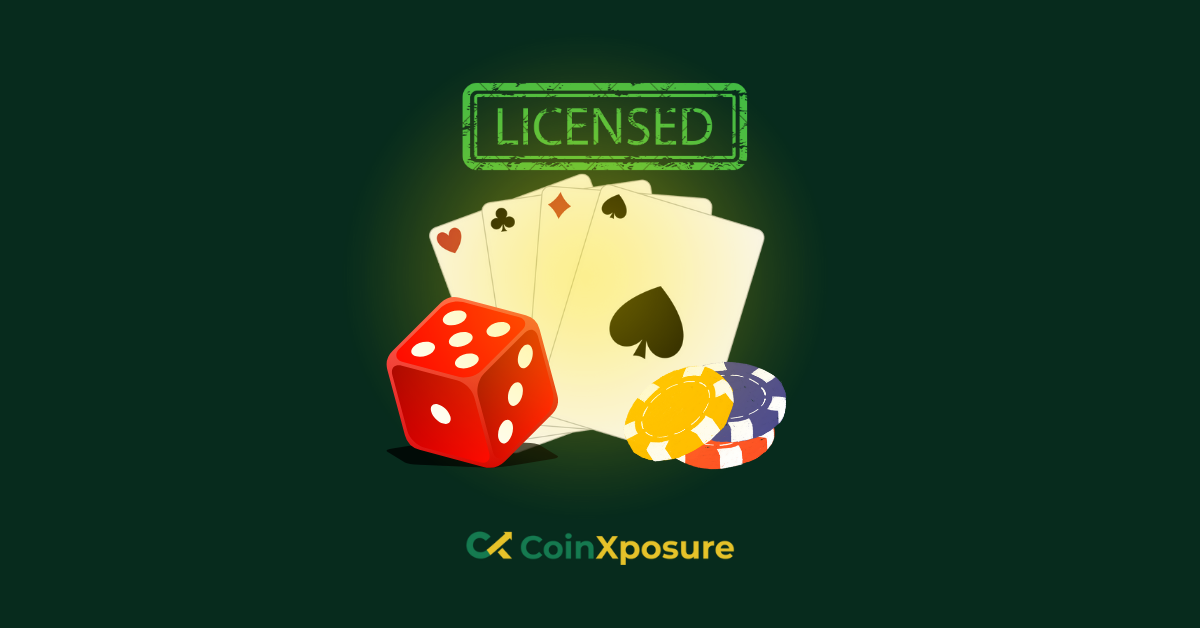
The Importance of Licensing, Audits, and Compliance in Poker Sites
In the ever-evolving landscape of online gambling, the integrity and trustworthiness of poker sites are paramount. Ensuring that these platforms operate with transparency and adhere to regulatory standards is fundamental to safeguarding players’ interests and maintaining the credibility of the industry.
This article will delve into the critical importance of licensing, audits, and compliance within poker sites, outlining their significance in upholding legality, fairness, and responsible gaming practices.
By exploring these key elements, we can better understand their role in shaping the online poker experience and fostering a secure and reputable environment for players worldwide.
Licensing in Poker Sites
Licensing serves as a cornerstone of legitimacy and accountability within the realm of online poker. Operating a poker site without a valid license from a recognized regulatory authority is not only illegal but also undermines trust and credibility among players.
A license acts as a stamp of approval, indicating that the operator has met stringent criteria set forth by regulatory bodies, ensuring compliance with laws and regulations governing online gambling.
Obtaining a license involves undergoing a thorough vetting process, which typically includes background checks on the operator, scrutiny of financial records, and assessments of the platform’s security measures.
Furthermore, licensed poker sites are often required to adhere to strict standards regarding player protection, responsible gaming, and anti-money laundering protocols.
The benefits of operating under a valid license extend beyond mere legality. A licensed poker site enjoys enhanced credibility, instilling confidence in players that their funds are safe and that games are conducted fairly. Moreover, a license grants access to regulated markets, enabling operators to reach a broader audience while demonstrating their commitment to regulatory compliance.
In essence, licensing in poker sites serves as a safeguard against fraud, ensuring that players are treated fairly and that the integrity of the game is preserved.
By adhering to licensing requirements, operators demonstrate their commitment to transparency, accountability, and responsible gaming, thereby fostering a trustworthy and sustainable online poker ecosystem.
Audits in Poker Sites
Audits play a pivotal role in upholding transparency, fairness, and security within online poker platforms. These systematic examinations assess various aspects of a poker site’s operations to ensure compliance with industry standards and regulatory requirements.
There are several types of audits conducted in poker sites:
- Financial Audits
- Security Audits
- Fairness Audits (RNG Testing)
Financial Audits
Financial audits scrutinize the financial transactions of a poker site, including deposits, withdrawals, and revenue streams.
These audits verify the integrity of the financial system, ensuring that funds are handled securely and transparently. Financial audits also help identify any irregularities or discrepancies that may indicate fraudulent activities.
Security Audits
Security audits focus on assessing the robustness of a poker site’s security measures. This includes evaluating the effectiveness of encryption protocols, data protection mechanisms, and cybersecurity infrastructure. Security audits aim to identify vulnerabilities and mitigate risks associated with hacking, data breaches, and other security threats.
Fairness Audits (RNG Testing)
Fairness audits involve testing the Random Number Generator (RNG) used in online poker games. The RNG is responsible for generating random outcomes in card distribution, ensuring that gameplay is unbiased and unpredictable. Fairness audits verify the integrity of the RNG algorithm, confirming that it produces genuinely random results and is not susceptible to manipulation or bias.
By conducting audits regularly, poker sites demonstrate their commitment to maintaining integrity, trustworthiness, and compliance with industry standards. Audits provide assurance to players that games are conducted fairly, funds are handled securely, and the platform operates with transparency.
Additionally, audit findings help identify areas for improvement, allowing operators to enhance their security measures, financial practices, and overall service quality.
Audits in poker sites serve as a critical tool for promoting accountability, transparency, and fairness in online gaming. By subjecting their operations to rigorous scrutiny, poker sites can enhance player trust, mitigate risks, and contribute to the long-term sustainability of the online poker industry.
Compliance in Poker Sites
Compliance refers to the adherence to legal and regulatory requirements, as well as industry standards and best practices, within online poker platforms. Ensuring compliance is essential for maintaining the integrity of the gaming environment, protecting players’ interests, and upholding the reputation of the poker site.
Key components of compliance in poker sites include:
- Anti-Money Laundering (AML) Measures
- Responsible Gambling Initiatives
- Data Protection and Privacy Regulations
Anti-Money Laundering (AML) Measures
Poker sites must implement robust AML protocols to prevent their platforms from being used for money laundering activities.
This involves conducting customer due diligence, monitoring transactions for suspicious behavior, and reporting any suspicious activities to regulatory authorities. By implementing AML measures, poker sites mitigate the risk of being exploited by criminals for illicit financial activities.
Responsible Gambling Initiatives
Responsible gambling initiatives are designed to promote safe and responsible gaming practices among players. Poker sites should provide tools and resources to help players manage their gambling habits, such as self-exclusion options, deposit limits, and access to support services for problem gambling.
By prioritizing responsible gambling, poker sites demonstrate their commitment to player welfare and minimize the potential harm associated with excessive gambling behavior.
Data Protection and Privacy Regulations
Poker sites handle sensitive personal and financial information from their players, making data protection and privacy regulations a critical aspect of compliance. Operators must implement robust data security measures to protect player data from unauthorized access, breaches, and misuse.
Compliance with data protection laws, such as the General Data Protection Regulation (GDPR), ensures that players’ privacy rights are respected and their data is handled in accordance with legal requirements.
By ensuring compliance with these regulations and standards, poker sites demonstrate their commitment to operating ethically, transparently, and responsibly.
Compliance not only helps to safeguard players’ interests and protect against legal and regulatory risks but also contributes to building trust and credibility within the online poker community.
Additionally, compliance initiatives can enhance the long-term sustainability and viability of poker sites by fostering a safe and secure gaming environment that attracts and retains players.
Challenges and Risks
Despite the importance of licensing, audits, and compliance in poker sites, there are various challenges and risks that operators must navigate in order to maintain regulatory adherence and uphold industry standards. Some of these challenges and risks include:
- Regulatory Complexity
- Compliance Costs
- Legal and Regulatory Risks
- Technological Challenges
- Fraud and Money Laundering Risks
- Reputation Risks
Regulatory Complexity
The online gambling industry is subject to a complex web of regulations and licensing requirements that vary significantly across jurisdictions.
Navigating these regulatory frameworks can be daunting for operators, especially those operating in multiple jurisdictions. Keeping up with evolving regulations and ensuring compliance with diverse legal requirements present significant challenges for poker sites.
Compliance Costs
Achieving and maintaining compliance with regulatory requirements can be costly for poker sites. This includes expenses related to obtaining licenses, conducting audits, implementing compliance measures, and hiring compliance personnel.
The financial burden of compliance can strain the resources of operators, particularly smaller or emerging poker sites.
Legal and Regulatory Risks
Non-compliance with licensing requirements and regulatory standards can expose poker sites to legal and regulatory risks.
This includes facing fines, penalties, and sanctions from regulatory authorities, as well as potential legal action from affected parties. Regulatory violations can also result in damage to the reputation and credibility of the operator, leading to a loss of trust among players and stakeholders.
Technological Challenges
Poker sites must continuously invest in technological infrastructure and cybersecurity measures to safeguard against security breaches, hacking attempts, and other cyber threats.
Ensuring the integrity and security of online poker platforms requires robust cybersecurity protocols and ongoing monitoring of technological vulnerabilities.
Fraud and Money Laundering Risks
The online nature of poker sites makes them vulnerable to fraud, collusion, and money laundering activities.
Operators must implement measures to detect and prevent fraudulent behaviour, such as identity verification procedures, transaction monitoring systems, and anti-fraud mechanisms. Failure to address these risks can undermine the integrity of the platform and compromise the trust of players.
Reputation Risks
Compliance failures and regulatory breaches can have significant reputational consequences for poker sites. Negative publicity surrounding legal or regulatory issues can tarnish the brand image and erode player confidence, leading to a loss of customers and market share.
Rebuilding trust and credibility after a compliance incident can be challenging and may require substantial effort and resources.
Poker sites face numerous challenges and risks in maintaining licensing, audits, and compliance. Addressing these challenges requires a proactive approach to regulatory compliance, ongoing monitoring of regulatory developments, and investment in robust compliance measures and risk management strategies.
By prioritizing regulatory adherence and compliance, poker sites can mitigate risks, protect their reputation, and foster a safe and trustworthy gaming environment for players.
Conclusion
In the dynamic world of online poker, the importance of licensing, audits, and compliance cannot be overstated. These elements serve as pillars of integrity, transparency, and accountability within the industry, safeguarding players’ interests and upholding the credibility of poker sites.
Licensing provides a foundation of legitimacy, signalling to players that the operator has met stringent regulatory standards and is committed to operating within the bounds of the law.
It instils confidence in players, ensuring that their funds are safe and that games are conducted fairly and transparently. Moreover, licensing grants access to regulated markets, expanding the reach of operators while demonstrating their commitment to regulatory compliance.
Audits play a critical role in maintaining transparency and fairness within poker sites. Financial audits verify the integrity of financial transactions, while security audits assess the effectiveness of cybersecurity measures. Fairness audits ensure that random number generators produce unbiased outcomes, guaranteeing a level playing field for all players.
By subjecting their operations to rigorous audits, poker sites demonstrate their commitment to upholding industry standards and mitigating risks.
Compliance encompasses a range of measures, including anti-money laundering protocols, responsible gambling initiatives, and data protection regulations. By adhering to these standards, poker sites prioritize player welfare, protect against legal and regulatory risks, and foster a safe and secure gaming environment.
By prioritizing regulatory adherence and compliance, poker sites can build trust, enhance credibility, and ensure the long-term viability of the online poker industry. By embracing transparency, accountability, and responsible gaming practices, operators can foster a safe and enjoyable gaming experience for players worldwide.





